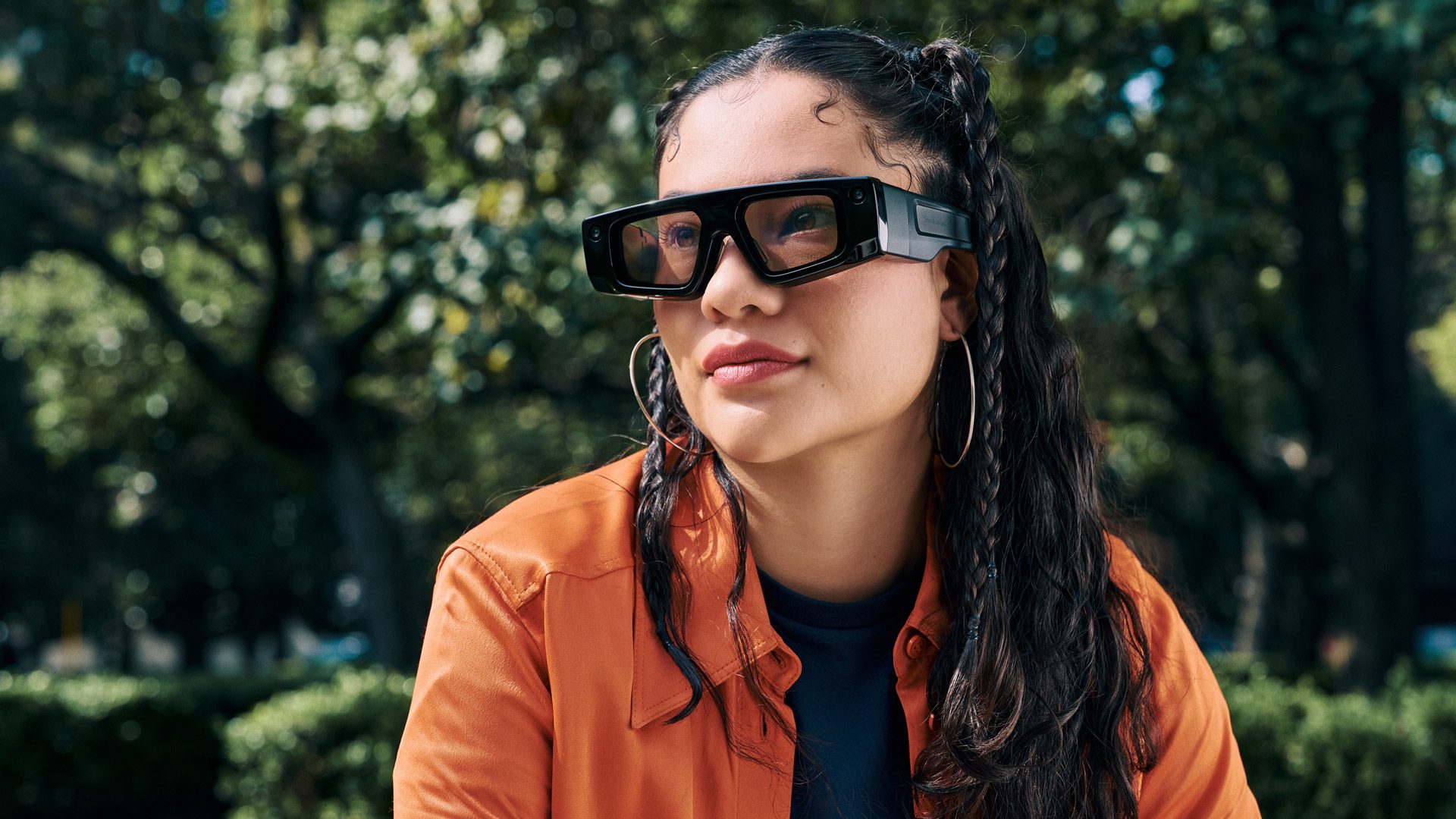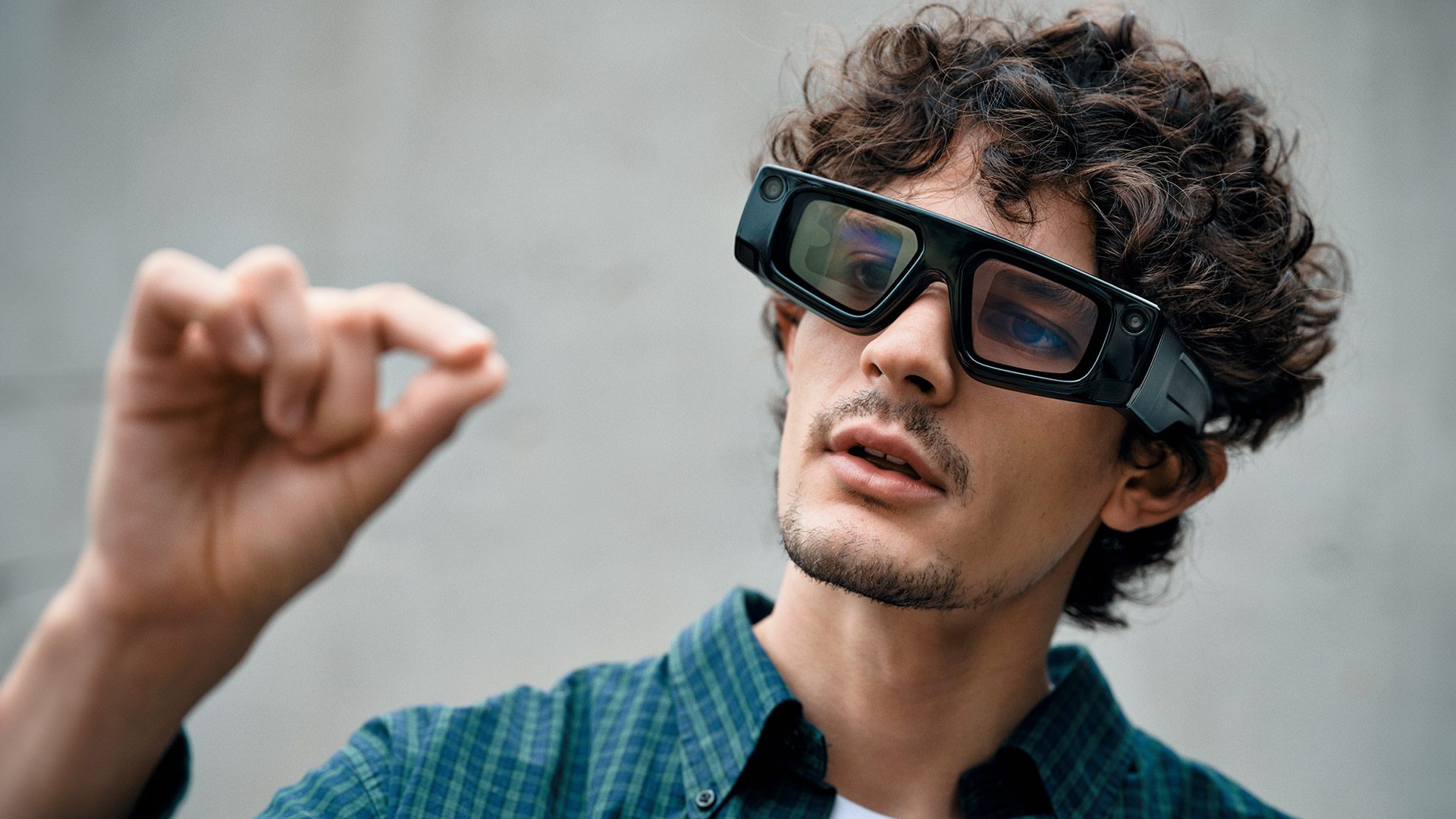Snapchat creator Snap today released Snap OS 2.0, the XR operating system powering its fifth and upcoming sixth gen Spectacles AR glasses, which are expected to launch next year.
Snap’s sixth gen Spectacles (aka ‘Specs’) are looking to appeal to consumers, which is a company first. And they’re ostensibly set to frontrun its largest competitors by launching next year.
Besides being lighter and smaller than the 2024-era glasses, that’s essentially all we know about the next version of Specs, as the company is keeping the lid on price, release date, and even specs of its first pair of consumer AR glasses.
With today’s release of Snap OS 2.0 though, it’s clear the company is making way for the consumer launch of its next Specs, packing in an overhauled web browser, more intuitive UI for viewing content in AR, as well as porting the popular XR rhythm game Synth Riders (2018).
Here’s a breakdown of everything Snap announced:
Browser — We’ve overhauled the Spectacles Browser with a new, minimalist design to make it faster and more powerful. We’ve also optimized it for quicker page loading and better power efficiency.
Spotlight – With the dedicated Spotlight Lens, we’ve created a phone-free, larger-than-life experience that spatially overlays your favorite content onto the real world.
Gallery – The Gallery Lens provides a spacious, interactive way to view your Spectacles videos. You can scroll through a carousel of your captures, zoom in for more detail, organize your favorites, and easily send them to friends or post to Snapchat.
Synth Riders – Players will be able to catch notes, ride the rails, and dodge obstacles by moving to the music, all while staying grounded in the real world and with the real people around you.
Notably, earlier this summer the company also added real-time text translation for things like signs and menus, speech translation for 40 languages, and an AI-powered ‘Spatial Tips’ function, which lets you ask Specs’ AI about the world around you.
While the standalone AR glasses (2024) are admittedly bulky, they’ve given Snap something of a first mover advantage among its larger competitors, such as Meta, Google, Apple, Samsung—all of which are currently working on AR glasses.

While we’re still waiting to see the company’s next gen AR glasses for consumers, these recent OS updates point to a device that Snap hopes we’ll use in everyday life, like in restaurants, on the beach, in public transport, and not just in a static office or living room.
In the meantime, developers have been able to create Lenses (basically AR mini-apps) integrated with Google Gemini or OpenAI’s ChatGPT since June 2025, in addition to porting smartphone-based Snapchat Lenses to Specs using Lens Studio API.
And, according to Snap CEO Evan Spiegel, Specs are set to be an integral part of the company’s future, with Spiegel noting in an open letter last week that Snap is heading into a make-or-break “crucible moment” next year.
Beyond increasing revenue through ads and direct revenue streams via its Snapchat smartphone app, Spiegel sees its AR glasses and AI integration playing a large role in the company’s performance.
Spiegel calls Specs are “an enormous business opportunity,” noting the AR device can not only replace multiple physical screens, but the operating system itself will be “personalized with context and memory,” which he says will compound in value over time.
“This moment isn’t just about survival. It’s about proving that a different way of building technology, one that deepens friendships and inspires creativity, can succeed in a world that often rewards the opposite,” Spiegel says.
Meanwhile, some of Snap’s largest competitors are moving at a more iterative pace, first releasing smart glasses like Ray-Ban Meta and Google’s forthcoming Android XR glasses, instead of launching full-AR glasses first. Both Samsung and Apple are rumored to be exploring smart glasses in addition to their work on AR glasses.
Want to know more about smart glasses and AR glasses? Check out our handy primer on the key differences here.
,
